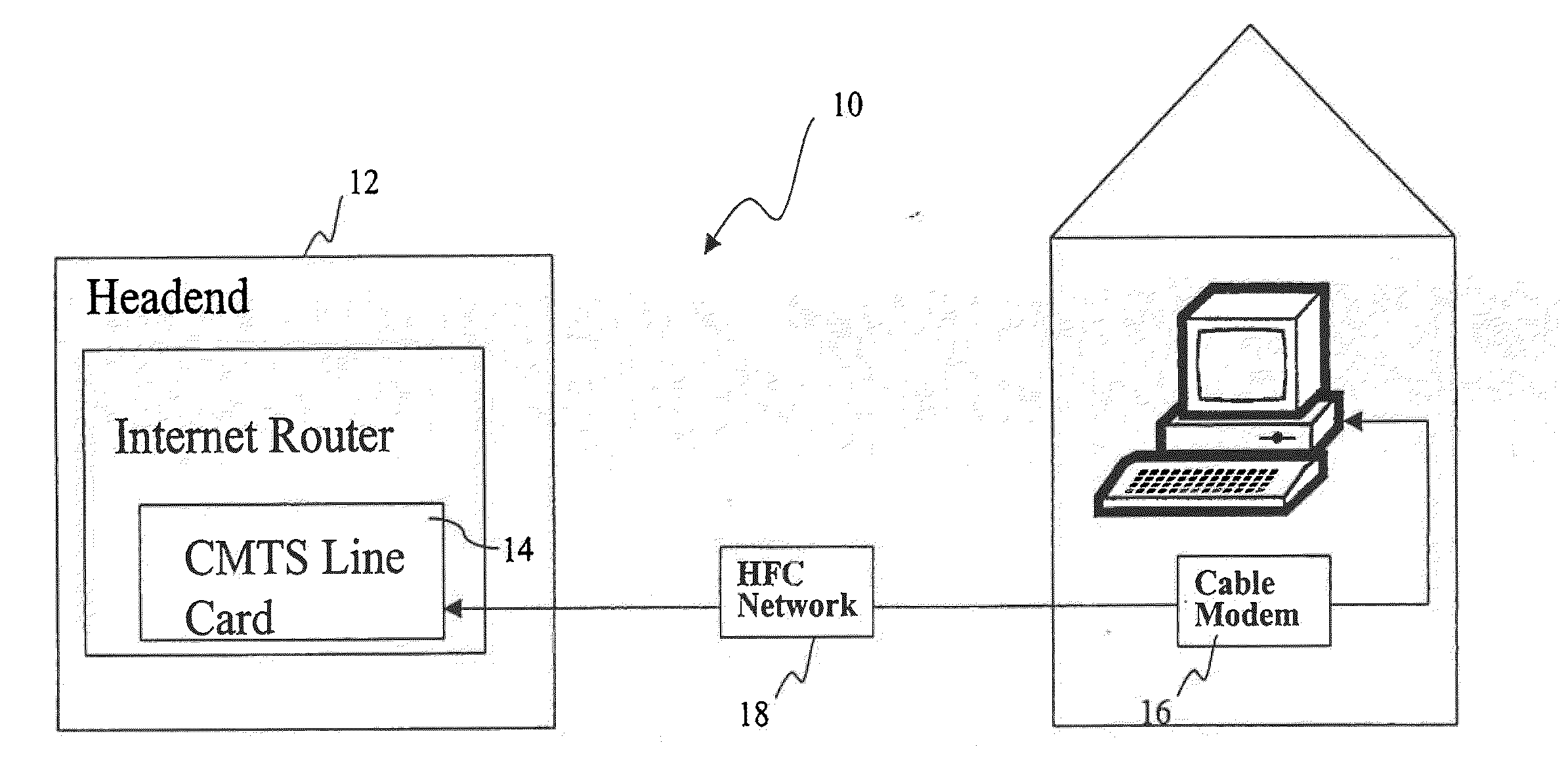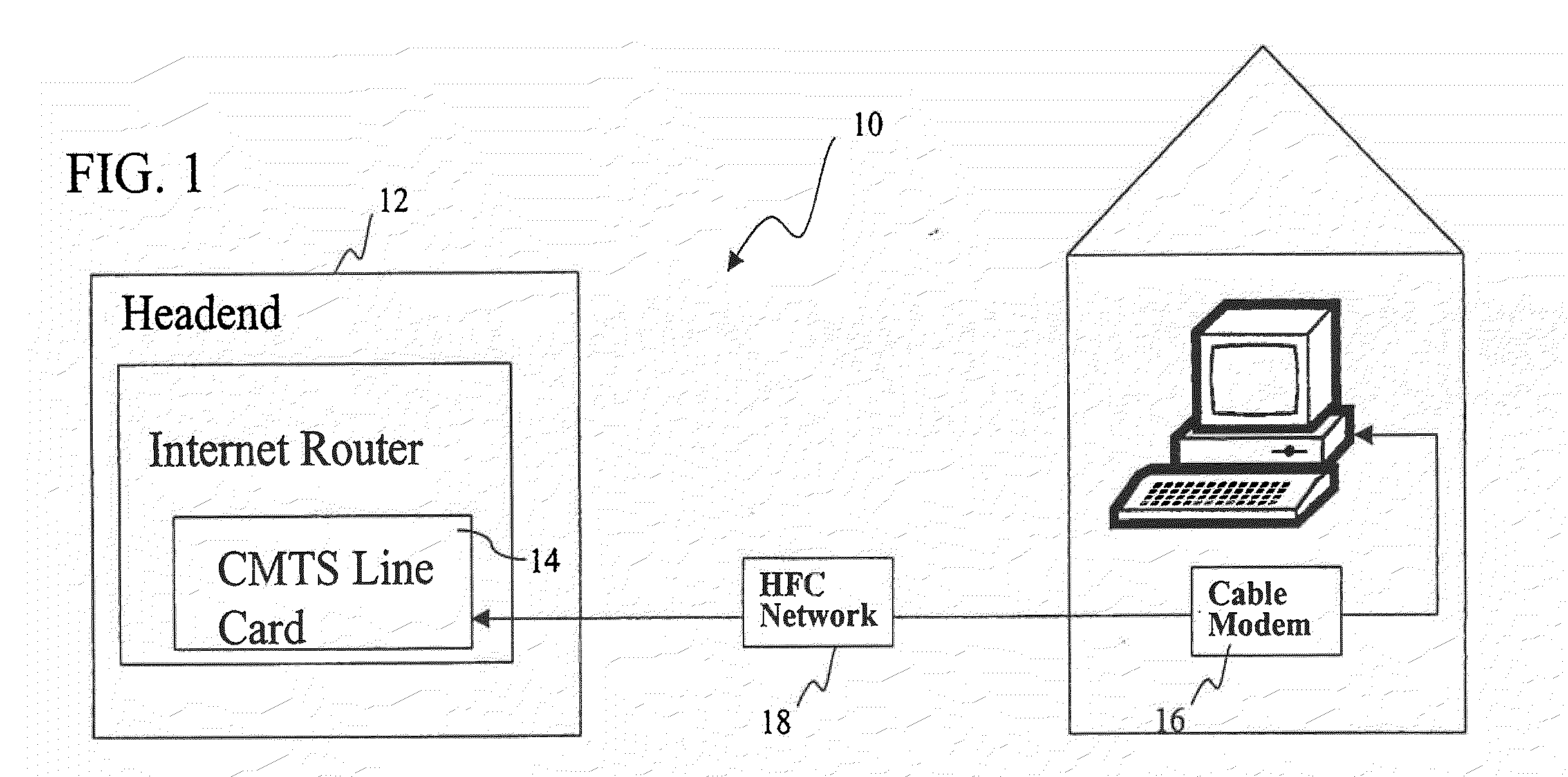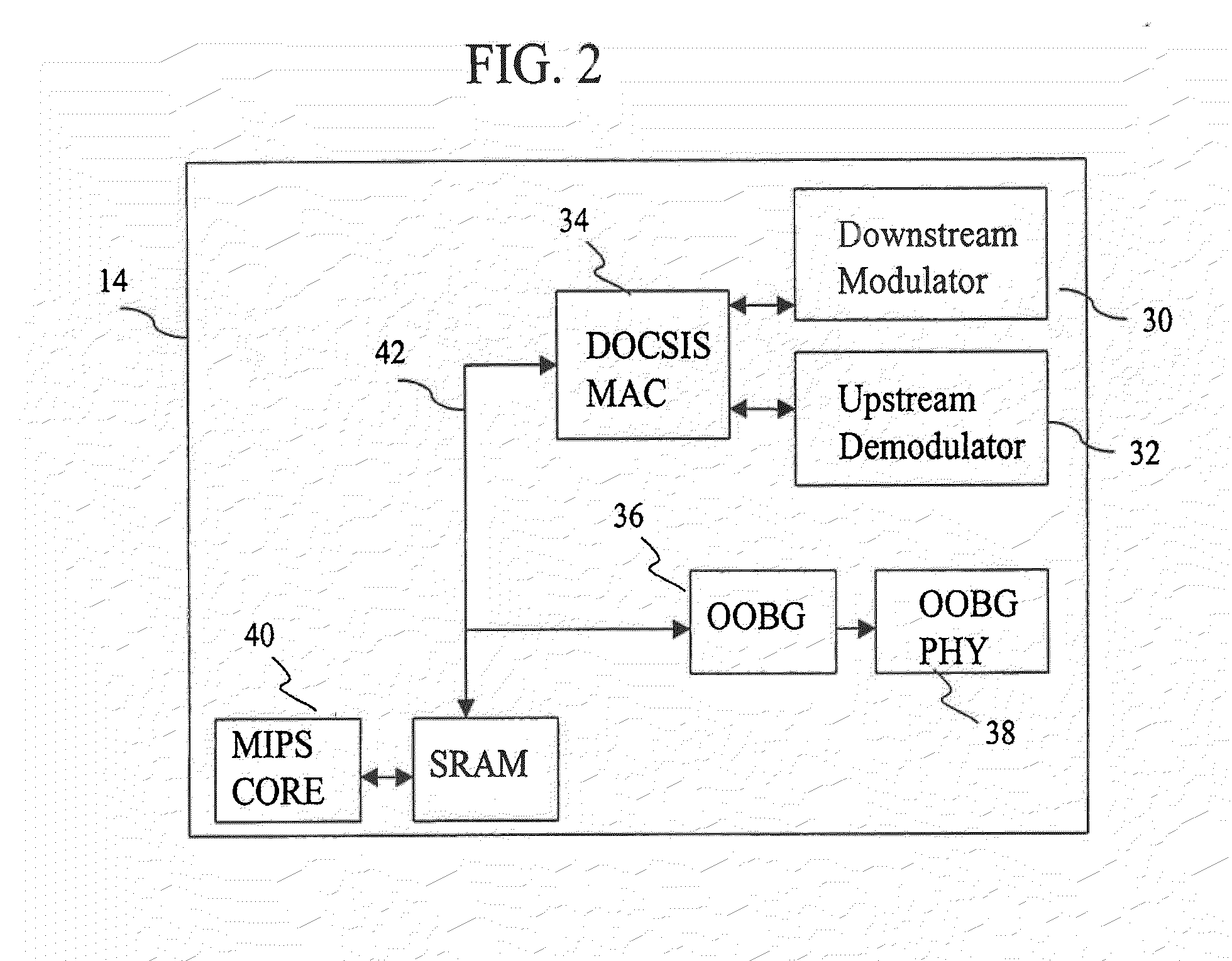Latency Reduction In A Low Power Mode
a low power mode and latency reduction technology, applied in the field of telecommunications systems, can solve the problems of significant attenuation of transmitted signals, effectively shutting down the hfc network, and inability to accept voice over cable applications, so as to facilitate communication of control signals and reduce latency in communications systems
- Summary
- Abstract
- Description
- Claims
- Application Information
AI Technical Summary
Benefits of technology
Problems solved by technology
Method used
Image
Examples
Embodiment Construction
[0029]An exemplary embodiment of the present invention provides a power management system that the power of DOCSIS compliant equipment without introducing significant latency. In order to appreciate the advantages of the present invention, it will be beneficial to describe the invention in the context of an exemplary bi-directional communication network, such as a HFC network.
[0030]A simplified block diagram of a particular exemplary implementation is depicted in FIG. 1. An exemplary cable modem system 10 includes a headend 12 having a cable modem termination system (CMTS) 14 located at a cable company facility. A CMTS utilizing the present invention is disclosed in a U.S. Patent Application entitled “Method and Apparatus for the Reduction of Upstream Request Processing Latency in a Cable Modem Termination System” Ser. No. ______ (Attorney docket B600:36885) filed on even date herewith by Lisa Denney, Angers Hebsgaard, and Robert J. Lee, the disclosure of which is incorporated fully...
PUM
 Login to View More
Login to View More Abstract
Description
Claims
Application Information
 Login to View More
Login to View More - R&D
- Intellectual Property
- Life Sciences
- Materials
- Tech Scout
- Unparalleled Data Quality
- Higher Quality Content
- 60% Fewer Hallucinations
Browse by: Latest US Patents, China's latest patents, Technical Efficacy Thesaurus, Application Domain, Technology Topic, Popular Technical Reports.
© 2025 PatSnap. All rights reserved.Legal|Privacy policy|Modern Slavery Act Transparency Statement|Sitemap|About US| Contact US: help@patsnap.com



